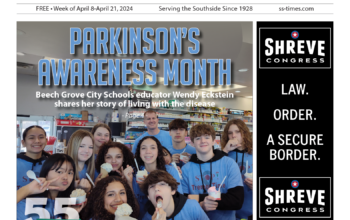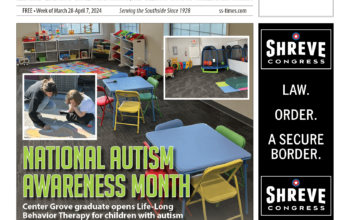By Curtis Honeycutt
What do you say when you need to blow your nose and the box of the tissues you want to use is across the room? You probably say something like, “Janet, will you please bring me a Kleenex?” This assumes there is someone named Janet on the other side of the room.
How about when your lips are dry, and you know your significant other always carries lip balm in his pocket? “Hey, can I borrow your ChapStick?”
The words “Kleenex” and “ChapStick” are examples of trademarked words that have become so common they often replace the generic term for the item. Kleenex is trademarked by the Kimberly-Clark company. They’re tissues, but the words “Kleenex” and “tissues” are interchangeable at this point.
It’s the same with ChapStick. By the way, the trademarked “ChapStick” word is an example of bicapitalization, which is when a company sticks a capital letter in the middle of a word. ChapStick is a trademarked lip balm, but when I’m looking for my Burt’s Bees lip balm, I say, “Have you seen my chapstick?” The term has become genericized.
You’ll be surprised at some of the other terms that have become household names but are actually trademarked products. They include Band-Aid, Allen wrench, Frisbee, Popsicle, Teleprompter and Velcro. These terms are still trademarked today.
Sometimes a term becomes so ubiquitous that it actually loses its legal trademarked status. In other words, the company has been so successful in dominating the market share for its industry that the people at the trademark office take away the trademark and lowercase the item in question. This has happened with the escalator, flip phone, trampoline, thermos, teleprompter and heroin. Yes, heroin was trademarked by Bayer back in 1898, but it lost the trademark as part of the Treaty of Versailles in 1919. At the same time, Bayer lost its trademark for aspirin.
The Pelz Group (also a German company) owns the trademark for the term “Q-tip.” Believe it or not, the little cotton-tipped sticks were originally marketed as “Baby Gays” by American inventor Leo Gerstenzang in 1925. However, Gerstenzang had trouble selling his “Baby Gays,” so the next year he began calling them “Q-tips Baby Gays.” Eventually, they were just “Q-tips” (the “q” stands for quality).
I doubt that yours truly will ever become a household name, but if I do start raking in the cash for my patent-pending 24/7 grammar hotline, I’ll be sure to hire a great team of lawyers.
—Curtis Honeycutt is a syndicated humor columnist. He is the author of Good Grammar is the Life of the Party: Tips for a Wildly Successful Life. Find more at curtishoneycutt.com.

